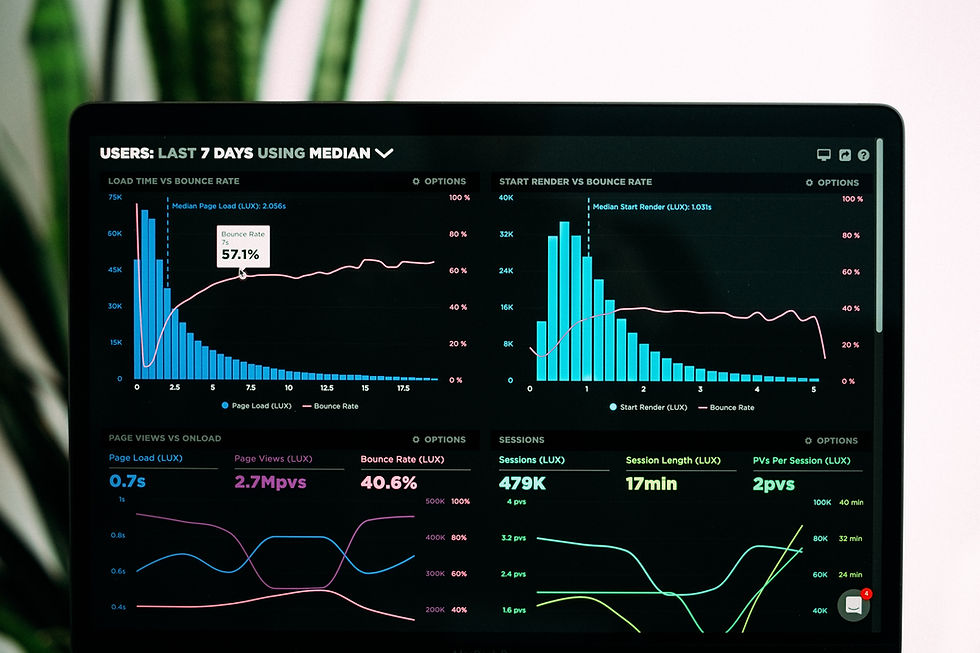The Power of Data Analytics How it Drives Business Growth
- Rimzan Zackeriya

- Mar 11, 2023
- 2 min read
I can confidently say that data analytics is essential for businesses to make informed decisions and drive growth. In today's fast-paced business environment, where data is generated at an unprecedented rate, businesses that can effectively harness data analytics can gain a significant competitive advantage.
Data analytics provides businesses with insights into their operations, customers, and markets. By analyzing data, businesses can uncover patterns and trends that would be difficult, if not impossible, to detect through intuition or observation alone. These insights can help businesses make better decisions, improve operations, and optimize their resources for maximum efficiency.

Here are some real examples of how data analytics has helped businesses:
Target: In 2012, Target famously used data analytics to predict which of its customers were pregnant and when they were due to give birth. By analyzing customer data, Target was able to identify patterns of behavior that were indicative of pregnancy, such as purchasing unscented lotion and vitamin supplements. This allowed Target to send targeted marketing messages and promotions to these customers, resulting in a significant increase in sales.
Amazon: Amazon uses data analytics to personalize the shopping experience for each customer. By analyzing customer data, including purchase history, search history, and browsing behavior, Amazon can recommend products that are likely to be of interest to each customer. This has helped Amazon become one of the most successful online retailers in the world.
Netflix: Netflix uses data analytics to make recommendations to its customers. By analyzing viewing history and other data, Netflix can recommend movies and TV shows that are likely to be of interest to each customer. This has helped Netflix become one of the most successful streaming services in the world.
UPS: UPS uses data analytics to optimize its delivery routes. By analyzing data on delivery times, traffic patterns, and other factors, UPS can identify the most efficient routes for its drivers to take. This has helped UPS save time and money, while also improving its delivery times and customer satisfaction.
In conclusion, data analytics is essential for businesses to make informed decisions and drive growth. By analyzing data, businesses can uncover insights that would be difficult, if not impossible, to detect through intuition or observation alone. Real-life examples such as Target, Amazon, Netflix, and UPS have shown that data analytics can lead to significant improvements in sales, customer satisfaction, and operational efficiency. As an expert in data analytics, my mission is to help businesses harness the power of data to achieve their growth objectives and gain a competitive advantage.




Comments